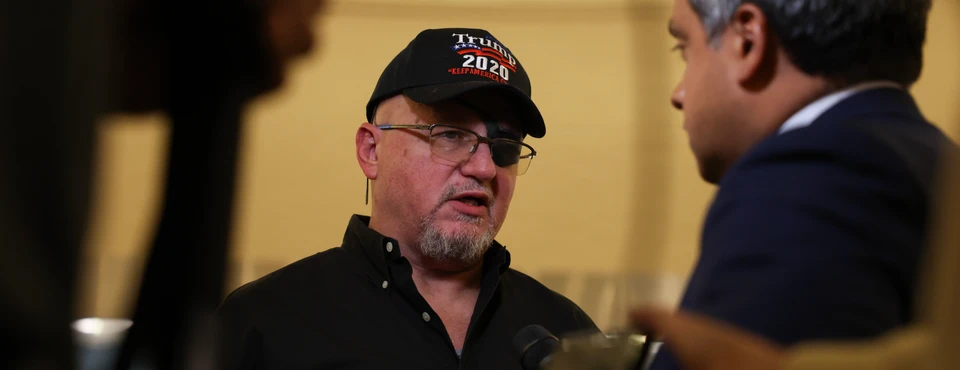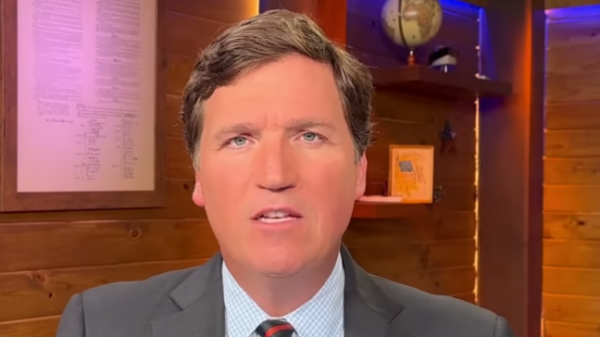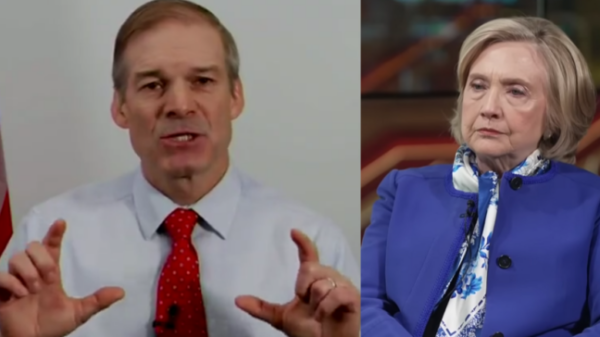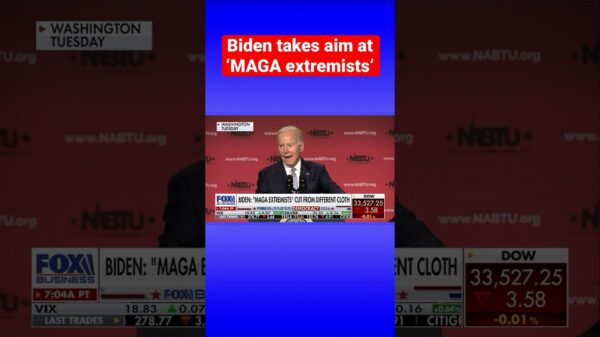A federal judge on Friday barred the founder of the Oath Keepers extremist group and several associates convicted in the Jan. 6, 2021, attack from entering Washington — or the US Capitol building — without his permission first.
The order from US District Judge Amit Mehta followed President Donald Trump’s decision to commute the lengthy prison sentences of Stewart Rhodes and his co-defendants, some of whom were found guilty of seditious conspiracy.
While they weren’t among the more than 1,500 defendants who received full pardons from Trump, they were released as part of that mass clemency. Trump’s actions spurred frustrated reactions from some members of the judiciary who spent the past four years reviewing evidence and testimony in the cases against Trump supporters involved in the deadly attack at the US Capitol.
Rhodes, who was serving an 18-year sentence, had been seen at the Capitol complex earlier this week and told reporters he was there to advocate for the release of someone else who was still in custody, according to the AP. A lawyer for Rhodes declined to comment. Mehta’s order also applied to seven of his co-defendants.
Mehta’s order was the latest instance of federal judges in Washington pushing back against Trump’s decision to wipe the legal slate clean for his supporters who attacked the Capitol and temporarily stopped Congress from certifying his election loss.
While some judges granted requests by the US attorney’s office in Washington to dismiss charges in cases that were pending without comment, others wrote opinions expressing disappointment and anger.
US District Judge Tanya Chutkan, who also presided over the dropped federal prosecution of Trump for his efforts to overturn the 2020 election, wrote in one case that “no pardon can change the tragic truth of what happened on January 6, 2021.”
“It cannot whitewash the blood, feces, and terror that the mob left in its wake,” Chutkan wrote. “And it cannot repair the jagged breach in America’s sacred tradition of peacefully transitioning power.”
US District Judge Beryl Howell denounced the “revisionist myth” in Trump’s presidential proclamation announcing the mass clemency that the prosecution effort was unjust.
The Jan. 6 cases “reflect the diligent work of conscientious public servants, including prosecutors and law enforcement officials, and dedicated defense attorneys, to defend our democracy and rights and preserve our long tradition of peaceful transfers of power,” Howell wrote.
US District Judge Amy Berman Jackson denied the government’s request to dismiss one case “with prejudice,” which would have the effect of barring re-prosecution. Jackson wrote that although Trump’s pardon meant that the defendant was unlikely to be charged again, the move wasn’t warranted because there was no evidence the prosecution was “legally or factually flawed.” She dismissed the indictment “without prejudice” instead.
“Moreover, a dismissal with prejudice would dishonor the hundreds of law enforcement officers who put their lives on the line against impossible odds to protect not only the U.S. Capitol building and the people who worked there – who were huddled inside in terror as windows and doors were shattered – but to protect the very essence of democracy: the peaceful transfer of power,” Jackson wrote.
“They are the patriots,” she continued. “Patriotism is loyalty to country and loyalty to the Constitution – not loyalty to a single head of state.”






















